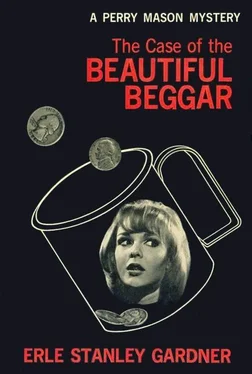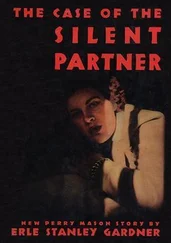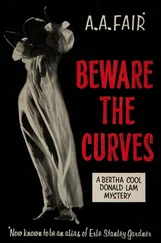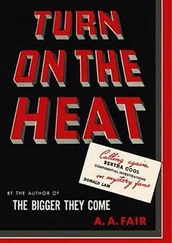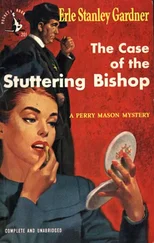Erle Stanley Gardner
The Case of the Beautiful Beggar
For many years I cherished a desire to meet and talk with Dr. T. Furuhata of Tokyo, Japan.
Almost from the beginning of my interest in legal medicine, I have heard of Dr. Furuhata, the discoveries he has made, the painstaking work he has done in the field of serology, in the field of legal medicine and police science.
When I wrote Dr. Furuhata about arranging an appointment in Tokyo, not only did he reply in the affirmative, but his treatment on our arrival was indicative of the innate courtesy and consideration of his race.
In the course of our correspondence, Dr. Furuhata suggested we come to his office in the National Research Institute of Police Science. We set the time when we would be there and tried to be punctual, but because of a heavy schedule of appointments and congested traffic,we were a few minutes late.
Despite the fact that it was a cold, windy day in Tokyo, we found two of Dr. Furuhata’s assistants standing bareheaded by the sidewalk waiting for us to drive up. They had probably been there for at least a quarter of an hour.
They made ceremonial bows from the waist after the fashion of the Japanese, then shook hands with us after the fashion of Westerners; then we were ushered in to see Dr. Furuhata.
I knew enough about the statistical information concerning this man to know that he was past seventy. I knew something of the prodigious amount of work he had done in his lifetime, and the energy he had expended overcoming prejudices, pioneering new fields, promoting research, encouraging new discoveries. I therefore expected to see a man who was at least trying to take life easy; who would be a little weary, and more than a little blasé.
To my surprise I found a keen-eyed individual who had all the energy of a tennis ball bouncing on a cement court.
The preliminaries over, Dr. Furuhata started talking about legal medicine, about blood grouping and about police science, and once he was embarked upon discussion of his favorite subject, his mind went racing over such a broad field that I confess he left me far behind.
From time to time we made an effort to catch up and managed to get a general understanding of what he was talking about, but it was impossible to keep up with the technical details.
For a long period doctors had felt that human blood was restricted to certain limited classifications. Then serologists began to find factors in those classifications and such men as Dr. Furuhata began to explore the field of subclassifications of these various factors.
The progress that has been made is amazing.
Dr. Furuhata, moving as swiftly as a professional athlete, began pulling down various and sundry tables, all carefully worked out on charts which, like window shades, could be rolled down from the ceiling and then rolled up out of the way.
Dr. Furuhata is bilingual. He speaks English and writes English as fluently as he talks and writes Japanese; but his charts, of course, were in Japanese, and while his explanations were in English he was soon racing into such technical fields that he left my mind tagging along, trying to catch up. I sat there nodding my head, getting as many points as I could, even more interested in the remarkable man than in the scientific principles he was expounding.
Then he took us into the police laboratory and museum, and started explaining the cases on which he had worked, cases represented by gruesome human remains pickled in formaldehyde, various weapons, bits of rope, bloodstained garments, all quite frequently illustrated by police photographs.
I was more at home here, but my main purpose in visiting Dr. Furuhata had been to find out something about the man as a man. His stature is so great in his profession that it needs only one word to describe it: Tops.
Dr. Furuhata, like so many first-class scientists, is completely, absolutely impartial. His devotion is to science, not to the prosecution, not to the defense, but to the science of investigative work, of legal medicine, of serology, and of proof.
He keenly probed my thinking. When we went into the police laboratory and museum he knew exactly when I had grasped the point he was making and the significance of the object he was pointing out.
They say that the definition of a good salesman is one who knows when to close the sale, and, by the same token, the definition of a good teacher is one who knows when he has explained his point.
Dr. Furuhata always stopped at the right moment, neither too soon nor did he keep on talking after we had grasped the point he was making.
Time ran on unnoticed. When I finally looked at my watch, I felt embarrassed because I knew how busy Dr. Furuhata was and how important his time.
Dr. Furuhata is internationally known, internationally respected. He is a Japanese scientist who has all the painstaking thoroughness which characterizes the Japanese, who, for this reason, have made so many interesting discoveries in the field of medical research. But, in addition to all this, Dr. Furuhata is a dynamic personality who gets all the material together before reaching a conclusion; and then when he reaches a conclusion, knows that it is the right one.
Because legal medicine is so important in our lives; because Dr. Furuhata’s knowledge has been of such great value in the investigation of so many crimes; because of the discoveries he has made and the pioneering work he has done in the field of serology, I wish to take this opportunity to dedicate this book to my friend,TANEMOTO FURUHATA, M.D., M.J.A.
Professor Emeritus Tokyo University
PERRY MASON — He took Daphne Shelby’s case because working for her would be a pleasure at any price — even for free.
DELLA STREET — She was a one-way Street — and the way was always Perry Mason's.
DAPHNE SHELBY — Her assets were obvious — a beautiful face and a check for $125,000.
PAUL DRAKE — His pipeline to the City’s banking circles was getting clogged by all the dirt in the Shelby case.
ELINOR FINCHLEY — Daphne’s aunt by marriage — she used to be a nurse and she was still handy with the needle.
STANLEY PAXTON — A bank executive with a weird sense of humor; when he lent Perry $75,000 without security, the Finchley’s couldn’t see the joke.
RALPH EXETER — Borden Finchley’s “closest” friend — he had a big investment in Borden and he meant to stay close to it.
BORDEN FINCHLEY — Horace Shelby’s half brother — he was determined to protect Horace and his fortune, even if it killed him — Horace, that is.
DARWIN MELROSE — Finchley’s earnest young lawyer — he was so busy plugging up legal loopholes that Mason stole the ease from under his nose.
DR. GRANTLAND ALMA — The court appointed him to examine Horace Shelby; now all he had to do was to find him.
DR. TILLMAN BAXTER — He got his medical degree the hard way — he bought it along with the Goodwill Sanitarium.
LIEUTENANT TRAGG — He was hot on the trail of the murderer, but he tripped over a gas pipe.
MARVIN MOSHER — He thought his case against Daphne was airtight; then Mason threw a wrench into the machinery.
HORACE SHELBY — His brother said he was senile, but he was shrewd enough to give the police — and the mob — the slip.
Della Street, Perry Mason’s confidential secretary, regarded the lawyer with pleading eyes.
“ Please see her, Chief.”
Mason frowned. “I have this ten-thirty appointment, Della, and before I see this man I want to— Oh, well, I don’t want to ruin your day. What’s it all about?”
Читать дальше
